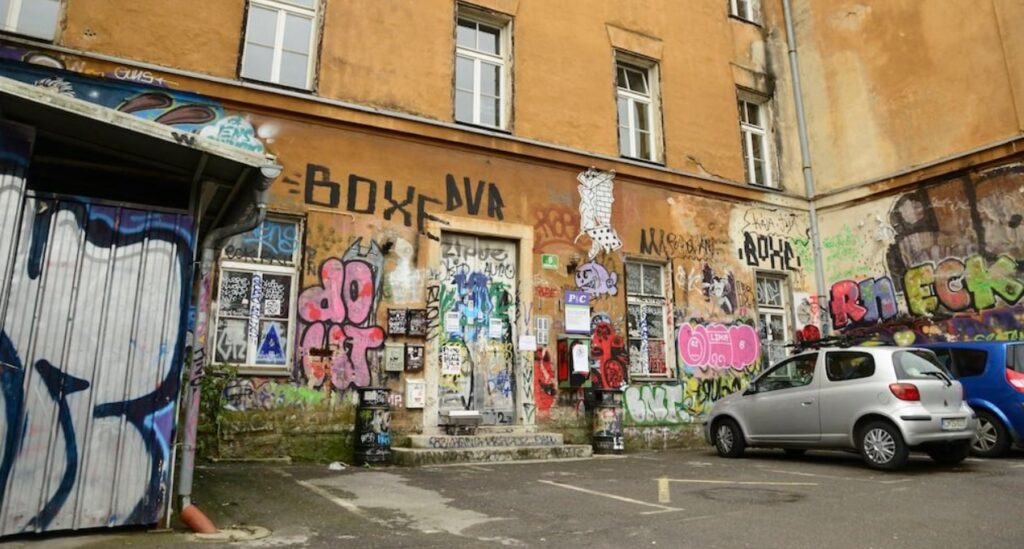Even before the recent floods, we heard warnings from the Minister of Finance, Klemen Boštjančič, that there was no more money to be squandered and that the fiscal rule would be followed from now on. Unfortunately, this warning came only after a year of lavish feasting for the government’s “fellow fighters” in the takeover: the public sector unions, the (public and private) media outlets and, of course, the (non-)governmental “street”, made up of left-wing NGOs. Today, when we are discussing whether the government (despite European aid) will be able to come up with enough money to allow people affected by the floods to return to their homes, you will be surprised to see the figures for financial transfers to the accounts of pro-government NGOs.
The most significant is the graph showing the financial transfers to the Peace Institute (Mirovni inštitut), which has literally exploded since the election of the new government (especially in December 2022, when budget funds were released). As an early farewell to the Šarec government, 138 thousand euros were transferred to them in December 2019, after which they never exceeded the 100-thousand-euro limit during the term of the Janša government.
Almost 60,000 euros in the August transfer
Then, in December 2022, a staggering 272 thousand euros were transferred to them, and the transfers continued merrily into the new year, with two huge transfers in March 2023 (171,000 euros) and June 2023 (106,000 euros). This proves that for certain NGOs, the protesting on the street against the Janša government, along with the left-wing politicians, certainly paid off. After all, this is obviously just business. What is even more appalling is that, at a time when the government is telling us that it will likely run out of both European and domestic funds for the reconstruction after the recent floods, it is in the same breath transferring a new 60 thousand euros to the Peace Institute in July. People will have to wait and live with their relatives for a year or two, but the most important thing is that the ‘institute’ is fighting for a beautiful new world with our money, right?!
The leader of the opposition and Slovenian Democratic Party (Slovenska demokratska stranka – SDS) President Janez Janša reminded the public on a recent episode of the show Odmevi (Echoes) on RTV Slovenia that instead of the previous 8 percent for studies and NGOs, the government has now allocated 20 percent to them, which, in his opinion, is a percentage we cannot afford, because the funds must be returned to projects for fighting the floods, where they are most needed. “There is some 100 million in additional grants available there,” he pointed out.
Working Saturdays?
While funds are being distributed to parastatal NGOs, coalition representatives have been talking about the introduction of unpaid working Saturdays, which have even been announced by two representatives of the ruling coalition. One is an MP of the Freedom Movement party (Gibanje Svoboda), Tamara Vonta, who wrote: “All days, every Saturday, all those socialist Saturdays that we worked, or my parents worked, for the cultural centres, for those victims of the earthquake in the former Yugoslavia, and so on. This is coming, these are the next steps.”
Forced solidarity: the government would help by using others’ hands!
In addition, Minister of Foreign and European Affairs Tanja Fajon confirmed that the idea is not completely irrelevant: “In the spirit of social democracy, we propose to first help those who lost everything in the devastating floods. Every second Saturday will be a solidarity Saturday, and companies will be able to contribute their profits to the Reconstruction Fund.” In good old leftist fashion, the government would like to use other people’s hands to help, with forced solidarity, which we are already familiar with from the case of migrant quotas at the European Union level.
We will work, and they will give the money to the institutes that are not actually institutes?
The idea of working Saturdays seems even more cynical when we consider the fact that the financial injections for the far-left “street” are by no means coming to an end. Instead of pouring the money earmarked for research of a socialist future into a fund for those in need, they want to take it away from the already record-taxed working class.
There are other ways, warned Miro Petek, a former MP and adviser to a minister. “By changing one article of the Income Tax Act, we can raise more than 20 million euros a year for flood recovery. The NGOs who have so far been the beneficiaries of donations should be replaced by those who suffered damage in the floods. This percentage is our money, and the National Assembly can make this change right away,” the former journalist proposed. Currently, the unallocated income tax (one percent) is being distributed to left-wing NGOs or by left-wing officials in the Ministry of Public Administration without transparency. This means that millions are at stake.
Instead, nothing will happen to the far-left NGO companions of the far-left government. Why should it, when you will be doing the work for them – as you always have.
M. I.


